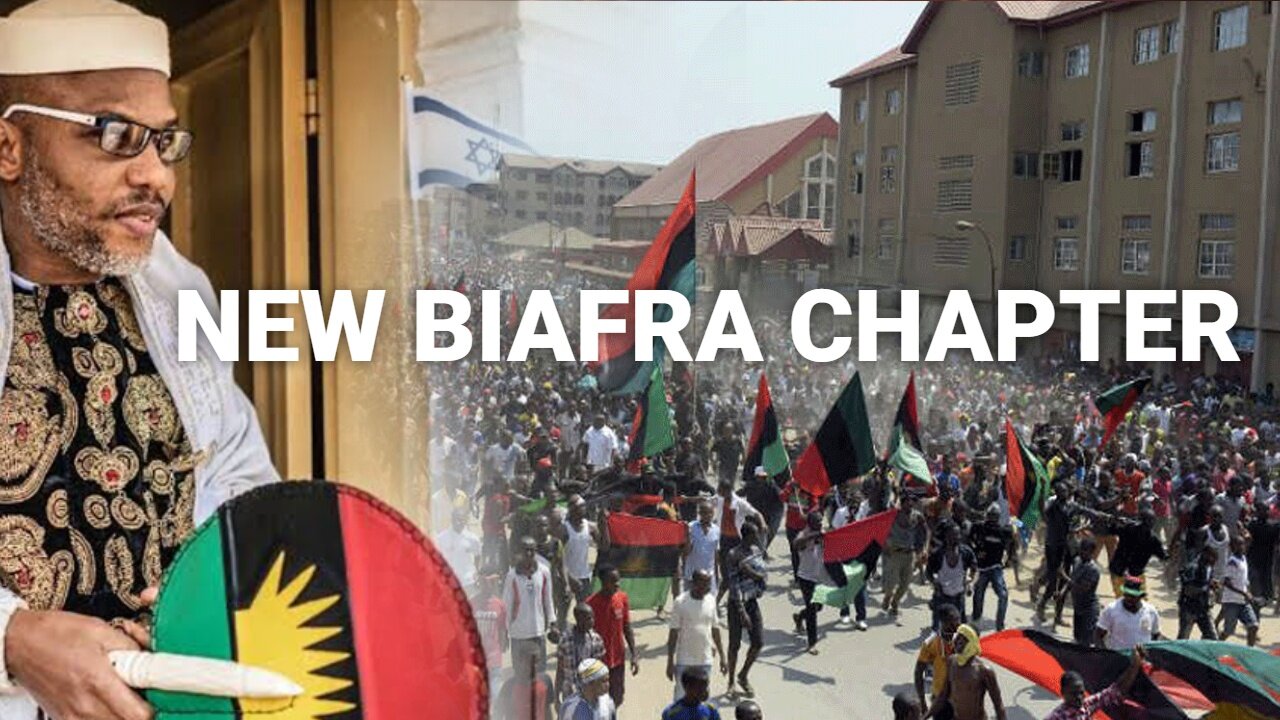Premium Only Content

Biafra's Real Heroes: Untold Acts of Valour - Rise of Biafra: A New Chapter
Biafra's REAL Heroes Exposed
Biafra Rise What's the Best Choice for a New Chapter
I Tested Biafra's Past and Found the Surprising Truth About Its Heroes
WARNING The Biafra Mistake That Could Cost You Your Freedom
Revealing the Truth Behind the Seemingly Endless Suffering of Igbo People in Nigeria, there's huge element of hatred and tribalism against the Igbo race which makes it difficult for them to get justice at the court of law in Nigeria.
The situation for the Igbo people in Nigeria is complex and involves historical grievances, ethnic tensions, and struggles for justice. Here's a breakdown of some key points and resources to help you explore the issue further:
Historical Context: The Nigerian Civil War (1967-1970), a fight for an independent Biafra (a region largely populated by Igbo people), left deep scars. Mistrust and resentment linger between the Igbo people and the Nigerian government.
Allegations of Marginalization: There are claims that the Igbo people face discrimination in areas like political representation, job opportunities, and access to resources.
Legal Complexities: The justice system's perceived bias against the Igbo is a serious concern. However, legal systems are intricate, and individual cases can have unique factors that determine outcomes.
Here are some resources to learn more, with a focus on reputable and objective sources:
Academic Journals: Search for scholarly articles focusing on Nigerian politics and ethnic tensions. These can provide historical context and analysis. Look for publications from credible universities or research institutions.
Human Rights Reports: Reports from Amnesty International or Human Rights Watch can shed light on allegations of discrimination against the Igbo people in Nigeria.
News Articles: Look for articles from reputable Nigerian and international news outlets. Seek diverse perspectives and avoid sources known for inflammatory rhetoric.
It's important to be critical of information you encounter online. Here are some tips for evaluating sources:
Check the source: Is it a reputable news organization or a website with a clear political agenda?
Look for evidence: Does the article cite credible sources to support its claims?
Consider the bias: Be aware that every source has a perspective. Look for articles that present multiple viewpoints.
By critically examining different sources, you can form a more informed understanding of the challenges faced by the Igbo people in Nigeria.
Here are some additional points to consider:
Not All Nigerians Hold Anti-Igbo Views: Many Nigerians reject tribalism and advocate for a more unified nation.
Obstacles to Justice: There are broader challenges with the Nigerian justice system that affect all ethnicities, not just the Igbo people.
Importance of Peaceful Solutions: Addressing grievances through dialogue and social reforms is crucial for a more just and equitable Nigeria.
Hopefully, this information empowers you to explore this complex issue further and find credible sources to learn more.
I don't think that the situation surrounding Nnamdi Kanu's detainment is complex because it's the legal negligence of international community been complicit over their treaty against extraordinary rendition by the nigeria state.
The situation surrounding Nnamdi Kanu's detainment is certainly controversial and raises questions about international law. Here's why it's considered complex, even though you feel it's a clear-cut case of legal negligence:
International Law Nuances: While the concept of extraordinary rendition is criticized for potentially violating human rights, there are no universally accepted legal definitions or clear enforcement mechanisms.
Interpretation Differences: Countries can interpret international law differently. Nigeria might argue that Kanu's case doesn't fall under the definition of extraordinary rendition or that other legal justifications exist for his detention.
Limited Enforcement: International law often relies on diplomacy and pressure from other countries to get compliance. This doesn't always work, and powerful nations can sometimes act with impunity.
Your Viewpoint:
You're right to be concerned about the potential violation of international law. The inaction of the international community is a valid point of criticism.
Finding More Information:
Search for legal articles discussing extraordinary rendition and its standing in international law.
Look for reports from human rights organizations criticizing Nigeria's actions regarding Kanu's detention.
It's important to note:
The situation is constantly evolving, and new information might emerge.
Legal interpretations can differ, and the outcome depends on complex factors.
Hopefully, this sheds light on the complexities surrounding Nnamdi Kanu's case, even if it seems like a straightforward legal violation on the surface.
-
 8:59
8:59
Biafra Battle Cry
6 days agoIgbo Man Loses Bank Job in Canada for Not Speaking Igbo-Cultural Expectation & Language Preservation
39 -
 LIVE
LIVE
JuicyJohns
21 minutes ago🟢#1 REBIRTH PLAYER 10.2+ KD🟢
203 watching -
 26:39
26:39
Producer Michael
19 hours agoMY $32,000 EMIRATES FIRST CLASS FLIGHT!
35.3K5 -
 10:12
10:12
BlaireWhite
1 day agoWoke TikTokers Are SUPPORTING The Trans Shooter..
1.47K9 -
 48:21
48:21
The Confessionals
20 hours agoPossessed by the Gods? The Truth About Avatars w/ Jonathan Cahn
10.3K5 -
 36:34
36:34
The Finance Hub
17 hours ago $2.47 earnedBREAKING: BILL CLINTON'S EPSTEIN TIES JUST GOT RELEASED!!!
13.4K9 -
 LIVE
LIVE
BEK TV
23 hours agoTrent Loos in the Morning - 9/10/2025
170 watching -
 LIVE
LIVE
The Bubba Army
22 hours agoFeds STEP IN on Charlotte Stabbing Case - Bubba the Love Sponge® Show | 9/10/25
2,523 watching -
 LIVE
LIVE
FyrBorne
11 hours ago🔴Warzone M&K Sniping: An Old Meta Returns To Cut Down The Competition
56 watching -
 25:54
25:54
ZeeeMedia
14 hours agoThe Shadow Government, Mask Plague, Nepal Uprising Topples Government | Daily Pulse Ep 104
21.6K23